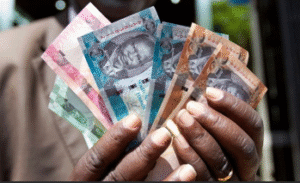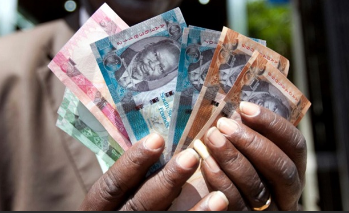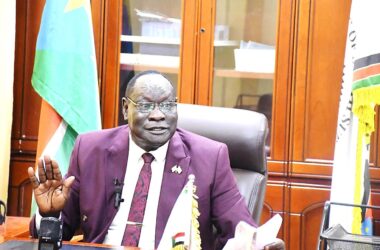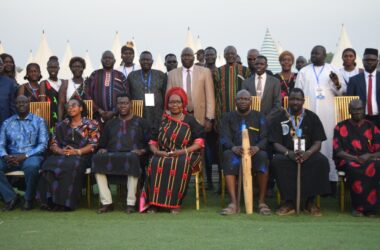
By Lodu William Odiya
The government workforce remains in confusion, as a fixed date for salary payment remains a promise with slow action.
On February 21, 2025, Vice President Dr. Benjamin Bol Mel, who is the chair of the economic cluster pledged to ensure payment on the 24th of every month.
The government workforce comprises civil servants, organized forces, and those at foreign missions.
This promise was, however, fulfilled in some months with the government announcing salary disbursement.
Meanwhile, in the recent months, the disbursement of salaries as promised has taken a different shape as government workers return to their previous days of hoping to receive.
Still the date did not remain the same as promised by Vice President and Chair of Economic Cluster.
Although the former Finance Minister blamed the liquidity crisis for the salary delay, the electronic payment does not seem to have met the fixed date.
In an interview with this outlet, Mayen Lino, a staff member at the government-owned Nile Petroleum Company, said there is no information about the salary date as promised.
He, however, added that the 24th falls within the weekend, citing that there is still hope to meet the date.
“There is no official communication from the ministry. It is not known now; maybe tomorrow or Tuesday,” Lino said.
Meanwhile, Edmund Yakani, the Executive Director for the Community Empowerment for Progress Organization (CEPO), noted a confusing situation where government blame a lack of cash to give to its workforce.
“They (government workforce) are told that their salaries are there, but when they go physically, they don’t get that salary,” Yakani said.
He urged the government to fulfill its promise by ensuring that money is transparently collected to ensure that salaries are paid.
“There is money, but it is deflected outside the banking system; that’s really a big national security threat,” he said.
He emphasized that it is the full right for the civil servants to receive salaries.
“We need to, of course, demand the government to pay their salaries and fulfill the civil servant promise that they have promised,” he appealed.
Yakani further underlined that the current economic situation requires political stability in the young nation.
“Investing in political stability will help the economy of the country, and also the government will have access to liquid money for clearing the dues of the civil servants,” he stated.
Also, Suzan Gabriel, one of the civil servants in one of the ministries, claimed that they have not received salaries for some months.
“Not yet, no money. I don’t know how many months if is to be counted; it might be many. “Yes, I don’t even count,” Gabriel said.
The Executive Director of the Centre for Peace and Advocacy (CPA), Ter Manyang Gatwech, said the issue of the salary is a concern that requires an urgent solution.
He said that the promises that were not fulfilled increase trauma to the citizens, especially people who have gone without receiving the salaries for a very long time.
“I think this issue needs to be addressed if there was a council of ministers, but now there is no council of ministers to sit,” he said.
According to Manyang, the challenges in regard to salary delay could be the frequent changes of the leadership, especially in the Ministry of Finance and Planning.
“If you look at the current minister now, he is a new member who knows nothing about what is going on,” he said.
“For instance, now, we were supposed to have the budget, but the country is operating without the budget,” he said.
The activist urged the government to ensure proper use of resources to meet citizens’ needs.
“What is the use of the budget if you cannot pay your own civil servant? Where does the money you budgeted go?” he questioned.
“South Sudan has money, but the money ends up in the pockets of individuals,” he added.
He expressed that the country has a lot of taxes; however, to meet the promised salary, the fixed date remains in confusion.
The activist said that since the roles of the parliamentarians are to oversee activities of the government, they need to summon the economic cluster leadership for more explanation.
In March this year, the government made a radical decision to ensure that civil servants and organized forces receive their salaries in a timely manner.
This came after a meeting between President Salva Kiir and Vice President for Economic Cluster Dr. Benjamin Bol Mel.
“Salaries will be disbursed consistently on the 24th day of every month, an essential step towards ensuring public service delivery, administrative efficiency, and economic reforms,” said Bol, as quoted by the presidential press unit.
“This is to restore confidence among the public and organized forces in the government’s commitment to timely wage payments.” It stated
Also, President Salva Kiir, as well as other officials, continues to advocate for the consistent salary payment for civil servants and organized forces.
The liquidity crisis in South Sudan has been exacerbated by a combination of factors, including economic downturns, market shocks, and a lack of deposit culture among the public.
The crisis has left government employees, including legislators, unable to access their salaries, highlighting the fragility of the economy.
Despite the salary delay, the South Sudan Revenue Authority (SSRA) announced that it collected 112 billion South Sudanese Pounds (SSP), equivalent to approximately 24.3 million US Dollars, during the first half of July 2025.
This performance exceeded its biweekly target of 100 billion SSP (about 21.7 million USD), marking a notable achievement in South Sudan’s domestic revenue mobilization efforts



